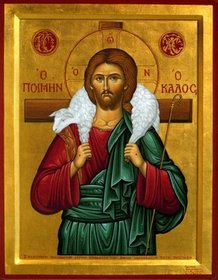"The first thing I require is for you to have a prior, one of yourselves, who is to be chosen for the office by common consent, or that of the greater and maturer part of you; each of the others must promise him obedience
--of which, once promised, he must try to make his deeds the true reflection--
and also chastity and the renunciation of ownership." --The Rule, Chapter 4
--of which, once promised, he must try to make his deeds the true reflection--
and also chastity and the renunciation of ownership." --The Rule, Chapter 4

Does it mean something that the 'First' thing Albert requires of the hermits on Mt. Carmel is to have a prior? In some ways, it may seem to us today to be a natural starting part: Organize yourselves into group first with at least some basic structure around a common cause (i.e. "to live in allegiance with Jesus Christ") and then proceed to make rules and discern the day-to-day means of life. However, this first step is not necessarily so basic. Why was building a chapel as a place to come together for Mass each morning not the first thing that Albert required? or the designation of individual cells? or the pledge of allegiance to Jesus Christ? We might consider that Albert did not even include the vows of chastity and poverty in his letter of the Rule, but this was a very common practice for eastern monastics because these vows were widely assumed and there was no need to specifically mention them. There remained, however many other questions and options within Albert's grasp. The selection (not necessarily election) of a prior was not a basic or self-evident choice. His choice of choosing a prior first and before all other requisites is meaningful.
Why did Albert 'First' require the hermits to have a prior? Was it because he thought them to be a disorganized band that needed unity and structure? Was he a hierarchist who demanded formal structure? Did he value obedience above all other virtues? Scholars can delve into the history, life and other works of Albert to come up with some plausible guesses, but I am no scholar and I am looking for something that is much more meaningful than 'plausible.' What meaning and significance can we find in our Order and Way of Life today from the basic fact that this if the 'First' thing that the Rule requires? What does this primary place among the demands of our Rule mean for us?
If we are in service to the Master, then is the Prior the one who now stands in this same place, as a living reminder of our commitment to Christ and obedience to Him? Is our obedience to Christ the primary cornerstone of living in allegiance to Him? What does it mean that obedience itself holds such a primary place and, are we living a community of humble obedience? or are we living a community of congenial independents, of decision makers living under a more or less present threat of being forced by obedience to act against our private will? Do we give obedience and what proper obedience means as friar and prior, sufficient attention and thought?
Specific answers may not be ready-at-hand, and that in itself is a very meaningful point. By claiming 'First' to require that we have a prior to whom we promise obedience, Albert is telling the brothers of Mt. Carmel that this issue is, for him, first above all others and should be central to our discernment and practice in living this Way of Life.
If we are in service to the Master, then is the Prior the one who now stands in this same place, as a living reminder of our commitment to Christ and obedience to Him? Is our obedience to Christ the primary cornerstone of living in allegiance to Him? What does it mean that obedience itself holds such a primary place and, are we living a community of humble obedience? or are we living a community of congenial independents, of decision makers living under a more or less present threat of being forced by obedience to act against our private will? Do we give obedience and what proper obedience means as friar and prior, sufficient attention and thought?
Specific answers may not be ready-at-hand, and that in itself is a very meaningful point. By claiming 'First' to require that we have a prior to whom we promise obedience, Albert is telling the brothers of Mt. Carmel that this issue is, for him, first above all others and should be central to our discernment and practice in living this Way of Life.

 RSS Feed
RSS Feed